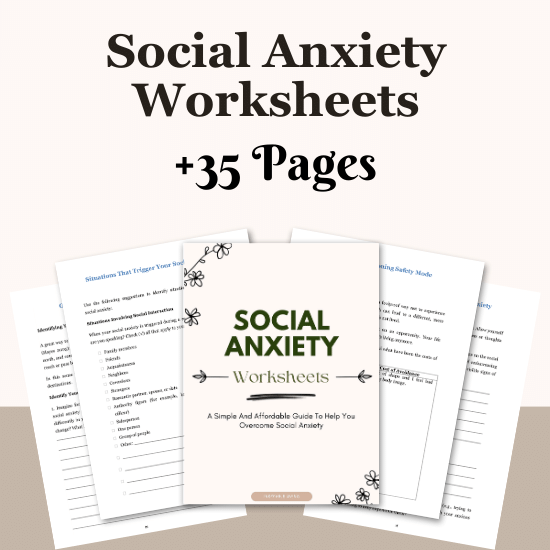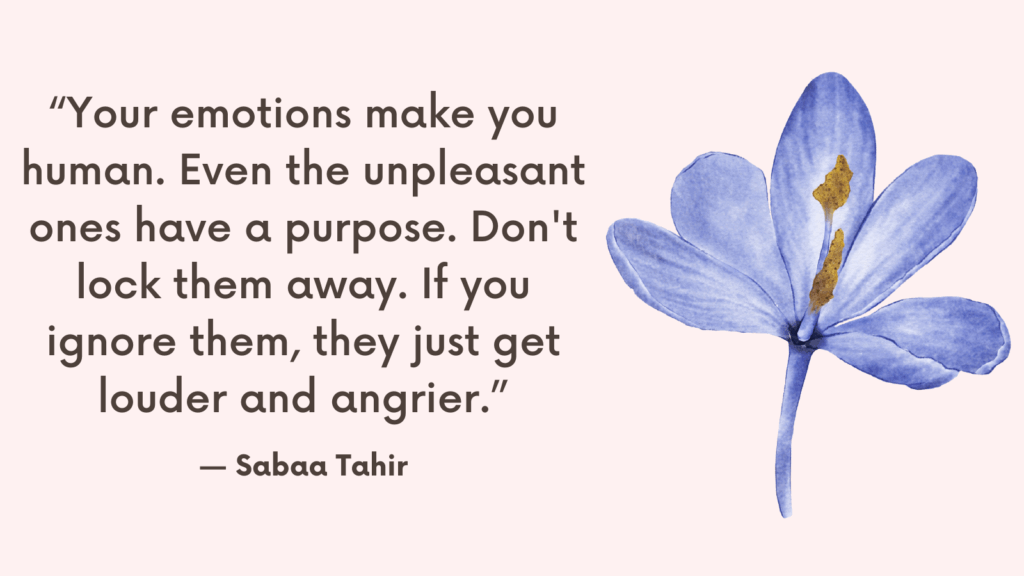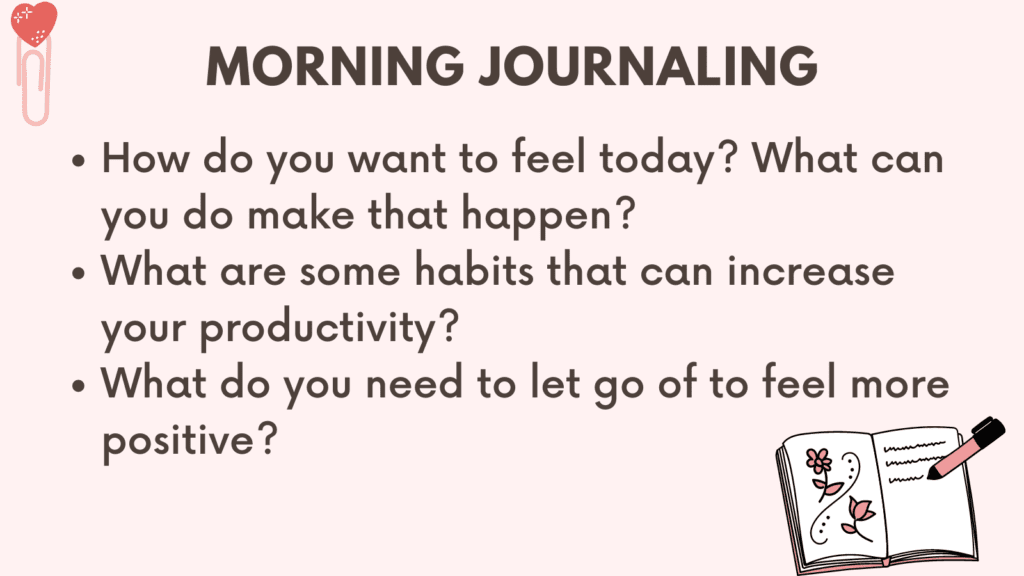This post contains some of the best journal prompts for social anxiety.
What Are Journal Prompts?
Journal prompts are suggestions for writing topics or questions that are designed to encourage self-reflection, personal growth, and creative expression.
These prompts may be specific or general and can cover a wide range of topics such as emotions, relationships, goals, fears, values, and more. Journal prompts provide a starting point for journaling and can help spark new ideas, insights, and perspectives.
They also offer an opportunity for individuals to explore their thoughts, feelings, and experiences in a safe and supportive environment.
Benefits of Using Journal Prompts For Social Anxiety?
Using journal prompts for social anxiety has many benefits, such as:
1. Self-reflection: Journaling prompts can help individuals with social anxiety to reflect on their thought patterns and identify triggers that cause them to feel anxious.
2. Improved emotional regulation: By writing down their thoughts and feelings, individuals can gain better control over their emotions and learn healthy ways to manage them.
3. Increased self-awareness: Writing about your experiences and emotions can help you become more aware of your own thoughts and behaviors and how they affect you.
4. Practice social skills: Journaling prompts can provide a safe space to practice different social scenarios that might cause anxiety in real life.
5. Build confidence: By reflecting on past experiences and identifying strengths and accomplishments, individuals can build confidence in their ability to handle social situations.
6. Reduce stress: Writing can be a stress-relieving activity, and by using journal prompts for social anxiety, individuals can release negative emotions and thoughts in a healthy way.
Related: 30 Day Social Anxiety Challenge That Will Help You Feel More Confident
Journal Prompts For Social Anxiety
1. What situations trigger your social anxiety? How do you typically react to these situations?
2. How does your body physically respond when you feel anxious in social situations?
3. How has social anxiety impacted your relationships with others? Have you lost any friendships or missed out on opportunities because of it?
4. How do your past experiences influence your current social anxiety?
5. What fears do you have about socializing and interacting with others?
6. Identify negative self-talk patterns that contribute to your social anxiety. How can you reframe these thoughts into more positive and realistic ones?
7. What assumptions do you make about others that contribute to your social anxiety?
Related: Best 10 Books For Social Anxiety
8. Reflect on a time when you successfully managed your social anxiety. What strategies did you use?
9. Write about a social situation that you fear and brainstorm strategies for coping with it.
10. What goals do you have for yourself in overcoming or managing your social anxiety?
11. What can you do to prepare yourself before entering a potentially anxiety-provoking social situation?
12. How can you work on building your self-confidence in social situations?
13. Write a letter to someone explaining your social anxiety and how they can support you in social situations.
14. Reflect on the benefits of seeking professional help for social anxiety. What fears or barriers might be preventing you from seeking treatment?
15. What self-care practices can you implement to help manage my social anxiety?
16. How can you practice self-compassion while dealing with your social anxiety? The following are some examples:
- “It’s okay to feel anxious in social situations. I’m not alone in feeling this way.”
- “I’m doing the best I can and that’s enough.”
- “I can choose to be kind to myself and not judge myself for feeling nervous.”
- “It’s normal to make mistakes and have awkward moments. I don’t have to be perfect.”
- “I deserve to take breaks when I feel overwhelmed.”
- “I can ask for help and support if I need it.”
- “I’m worthy of love and acceptance, even if I struggle with social situations.”
17. Write a list of affirmations to help you cope with social anxiety. The following are some examples:
- I am capable of overcoming my social anxiety.
- I am worthy of love and acceptance, no matter what.
- My confidence in myself is growing with each passing day.
- I am surrounded by people who support and encourage me.
- I am free from the burden of caring about others’ opinions.
- I am comfortable being myself in any social situation.
- I release all fear and anxiety related to social interactions.
- I have the power to create positive and meaningful connections with others.
- I am grateful for every opportunity to connect with new people.
- I trust in myself and my ability to navigate social situations with ease and grace.
Related: Best 50 Social Anxiety Affirmations
How to Use Journal Prompts For Social Anxiety?
Here are some steps you can follow:
1. Choose a prompt: Start by selecting a journal prompt that resonates with you. There are many journal prompts available online or in books specifically geared towards social anxiety.
2. Reflect on the prompt: Spend some time thinking about the prompt and how it relates to your social anxiety. Allow yourself to be honest and vulnerable in your response.
3. Write freely: Once you have reflected on the prompt, start writing freely without worrying about grammar, spelling or punctuation. Write down whatever comes to mind – don’t censor or judge yourself.
4. Analyze your response: After you have written for a while, take a step back and analyze what you have written. Look for patterns in your thoughts, emotions, and behaviors related to social anxiety.
5. Develop coping strategies: Based on your analysis, brainstorm some coping strategies that could help you manage your social anxiety. Write these down in your journal so that you can refer back to them in the future.
6. Revisit your journal: Use your journal as a tool to reflect on your progress over time. Revisit your old entries to see how far you have come and to remind yourself of the strategies that have been helpful for you.
Related: Top 10 Social Withdrawal Signs — & How To Social Isolation? (Hikikomori Syndrome)

Practical Steps To Help Overcome Social Anxiety
1. Start Small
Begin with less intimidating social settings. Talk to a cashier, say hello to a neighbor, or ask someone for directions.
2. Prepare and Practice
Think about topics you can discuss or questions you can ask before you enter a social situation.
Practice conversations with a trusted friend or family member.
3. Challenge Negative Thoughts
Recognize and write down any negative thoughts about social situations.
Challenge these thoughts with positive, realistic ones. For example, instead of thinking, “Everyone will laugh at me,” think, “People are usually kind and understanding.”
4. Focus on Others
Instead of focusing on how you’re being perceived, concentrate on the other person. Listen actively and show interest in what they are saying.
5. Relaxation Techniques
Practice deep breathing exercises to calm your nerves.
Tense and then relax different muscle groups to reduce physical tension.
6. Set Realistic Goals
Set small, achievable goals for social interactions. For example, aim to say one new thing in a group conversation.
7. Exposure Therapy
Gradually expose yourself to social situations that make you anxious. Start with less intimidating ones and work your way up.
8. Seek Support
Share your feelings with a trusted friend, family member, or therapist.
Find a support group for people with social anxiety. Sharing experiences with others can be very helpful.
9. Learn Social Skills
Learn and practice social skills, such as making eye contact, starting conversations, and listening actively.
10. Celebrate Successes
Celebrate your successes, no matter how small. Recognize that every step forward is an achievement.
Conclusion
Using journal prompts for social anxiety can be a great way to explore your thoughts and feelings about social situations, as well as develop strategies for coping with and managing the anxiety.



